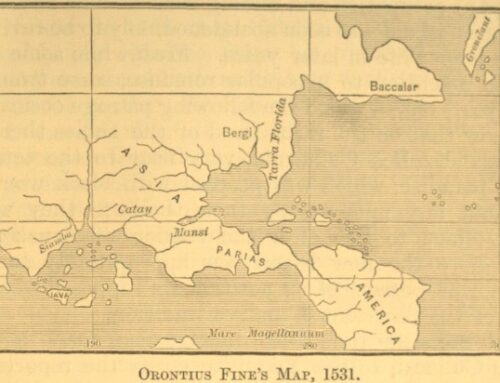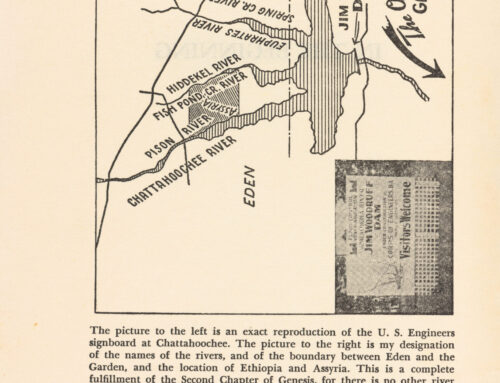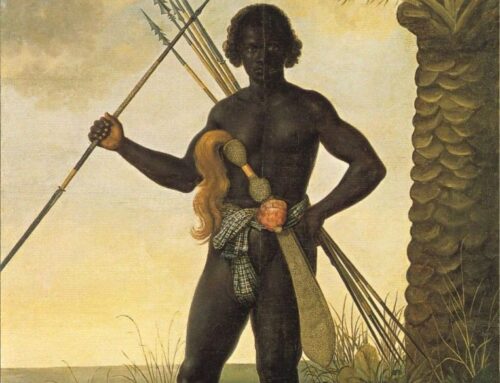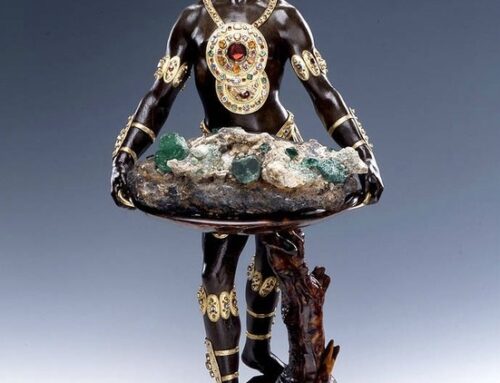




Greetings friends, today’s post, “Ancient Punt was in South America,” is not intended to take away from any of the glory of Africa, because truth cares not who has the glory. Today’s post is intended to demonstrate that Ancient Punt was in South America, so that it can be no doubt that America is the True Old World.
In this post is 2 images of Egyptian Temple engravings from Pharaoh Hatshepsut’s Temple. Pharaoh Hatshepsut was a female Pharaoh from the famed 18th Dynasty of ancient Egypt. One of the temple engravings is a maize (corn) cob and the other engraving is pineapples that the Ancient Egyptians had got from the land of Punt. This means that ancient Punt had to be somewhere in the Americas, because Maize (corn) and Pineapples are only indigenous to the Americas. According to the blog post image of the map of Punin (Punt), and the coordinates given out below by Dr. Gunnar Thomas and Paul Gallez, ancient Punt was in South America near the Puno region of Peru, on the shores of Lake Titicaca. Yes, Punin was ancient Punt, because it is located near the Puno region of Peru, on the shores of Lake Titicaca.
Now, let’s consider all of the evidence to determine if ancient Punt was in South America: (1.) Phonetically, Punin and Punt are one and the same, because the words are almost identical; (2.) the map of Punin in South America matches the coordinates of the location of ancient Punt given out by Dr. Thomas and Paul Gallez; (3.) and the Corn and Pineapples that the Egyptians said they got from the land of Punt, we can easily conclude that ancient Punt was in South America, based upon the preponderance of the evidence.
“Dr. Gunnar Thompson argues that Punt was a Phoenician trading base near the equator on the American mainland. The New World was a major source of copper, which is found mainly in the Andes in Peru and Isle Royale in Lake Superior. Paul Gallez argued that the Land of Punt was the Puno region of Peru, on the shores of Lake Titicaca, where there are many old gold and antimony mines –metals that were brought back from Punt. The reed boats used on Lake Titicaca are almost identical to those used in ancient Egypt: 1. Gunnar Thompson, Secret Voyages to the New World: Nine true adventures from the forbidden chronicles of American discovery, Seattle, WA: Misty Isles Press, 2006, pp. 173-97; Gunnar Thompson, ‘How the Portuguese out-foxed Columbus’, in Frank Joseph (ed.), Unearthing Ancient America: The lost sagas of conquerors, castaways, and scoundrels, Franklin Lakes, NJ: New Page Books, 2008, pp. 234-43; Gunnar Thompson, From ‘fantasy isles’ into continents: how myths became realities at the hands of Portuguese cartographers,” www.marcopolovoyages.com.
Yes, ancient Punt was a Phoenician trading post near the equator on the American landmass according to all of the evidence provided in this post. The Phoenicians were Canaanites: https://en.wikipedia.org/wiki/Phoenicia. “The Phoenicians were an offshoot of the Canaanites, a group of ancient Semitic-speaking peoples that emerged at least in the second millennium BC..”[42][end quote].
The Canaanites were Muurs/Moors, so ancient Punt was an ancient Blackamoor civilization, because the Ancient Ones, aka, the Mound Builders, or the Washitaw Muurs, were a melanated (dark) tribe of Berber Indians or Muurs from India Superior (the Americas) that are recognized by the United Nations as being the oldest indigenous people on the plant. You can read more about the Washitaw by reading this blog post: https://www.americaistheoldworld.com/the-washitaw-moors-muurs/.
The fact that Punt was in South America is very significant, because Punt is the birthplace of Ethiopia and Egypt, which were also ancient civilizations that were in the Americas too. Every civilization that Africa and the Middle East is known for was also in the Americas. In fact, Africa is just a reflection or a copy of the great civilizations that the Muurs had first in the Americas. Peace.








Leave a Reply